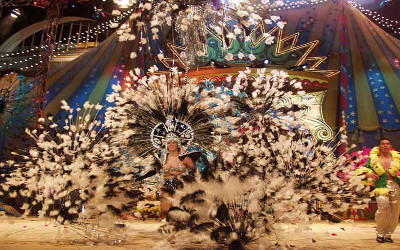I would like to post some Spanish sayings that Spanish people often use, so you can study the ones that are more used and leave that others less used.
In this post I will show you some sayings that tell what you have is not totally bad, at least.
¡Algo es algo! - It's something.
Explanation: You could have obtained nothing from an action, but at least you obtained something, so you have to feel good for that.
Example:
- No podemos ir al cine pero por lo menos podemos ver una película en casa.
- Tienes razón, ¡algo es algo!
Translation:
- We can't go to the cinema but at least we can watch a movie at home.
- You're right, it's something!
Es mejor que nada - It's better than nothing
Explanation: It refers to the fact that if you have obtained nothing from an action, it would have been clearly worse, and because of it you have to feel good for the current result.
Example:
- Somos tres personas y ahora sólo tenemos una galleta para comer.
- Bueno, es mejor que nada...
Translation:
- We are three people and now we only have one cookie for eating.
- Well, it's better than nothing...
Más vale pájaro en mano, que ciento volando - One bird in the hand is worth two in the bush. (Literraly = One bird in the hand is worth a hundred of them flying)
Explanation: It refers to the fact that is better to have something for sure than aim to have more being in risk of loosing everything.
Example:
- ¡Qué mal! Si hubiera jugado un rato más, habría ganado más dinero...
- No pienses así, más vale pájaro en mano que ciento volando.
Translation:
- That's so bad! If I have played for some more time, I would have won more money...
- Don't think so, it's better
Es mejor estar sólo que mal acompañado - Better alone than poorly accompanied.
Explanation: It's better to stay alone than going with bad people (friends, boy/girlfriend or other people in general).
Example:
- La novia de Juan dejó a Juan por otro hombre después de seis meses de relación.
- Fuf, pobre Juan... sabes que, es mejor estar sólo que mal acompañado.
Translation:
- Juan's girlfriend left Juan for another man after just six months of relationship.
- Uf, poor Juan... you know, better alone than poorly accompanied.
Más vale poco y bueno que mucho y malo. (Literally = A few and good is worth lots and bad [friends])
Explanation: It means that is always better to have a few trustful and loyal friends than a lot of friends that are not reliable and could hurt you, so they are not really good friends.
Example:
- Roberto tiene muchos amigos y yo sólo tengo dos amigos...
- Pero tus amigos son amigos íntimos, y Roberto en realidad no tiene ningún amigo íntimo. No olvides que más vale poco y bueno que mucho y malo.
Translation:
- Robert has a lot of friends and I only have two friends...
- But your friends are very close friends, and actually Robert doesn't have any close friend. Don't forget that 'a few and good is worth lots and bad'.
And that's all for today! I hope you like it. Don't forget to read the note below ;)
¡Hasta pronto! :)






















